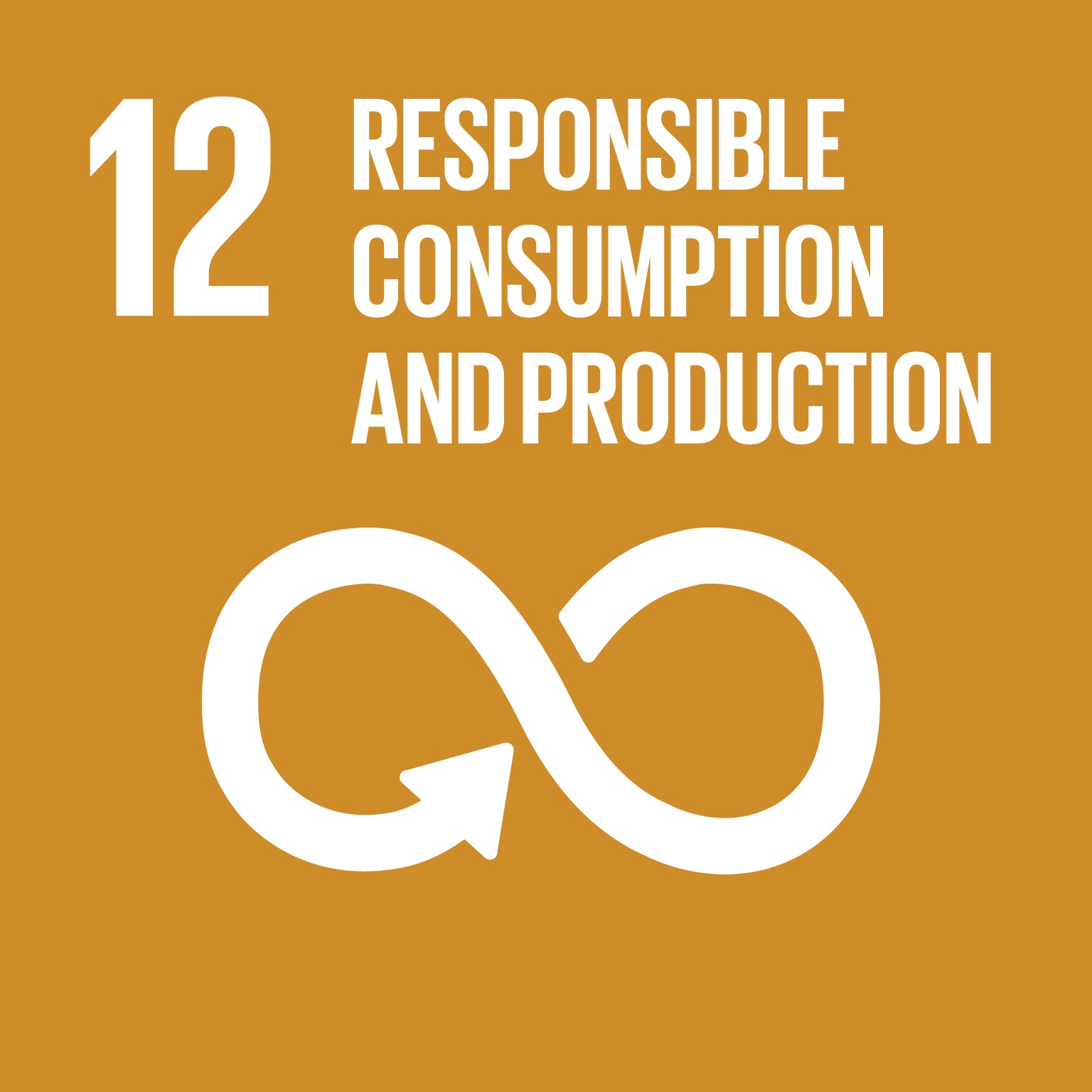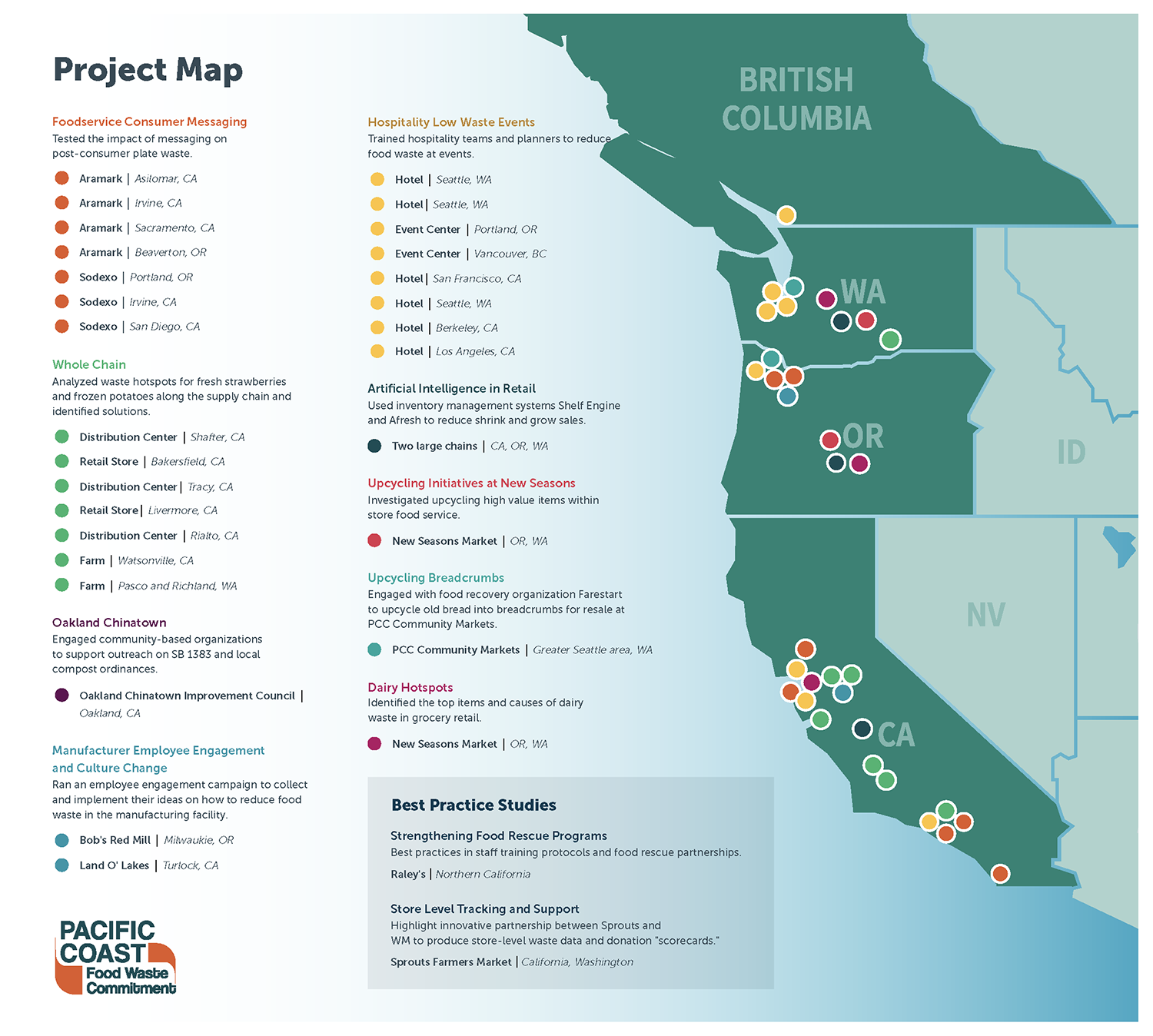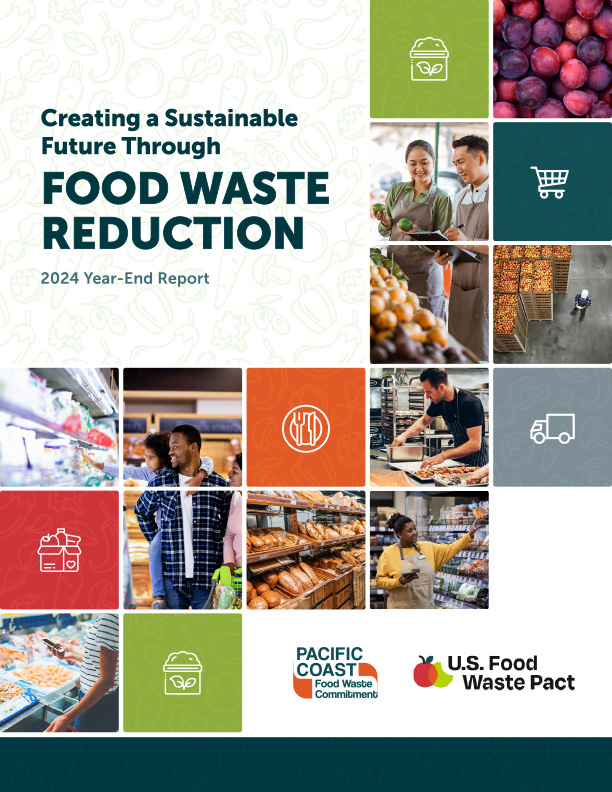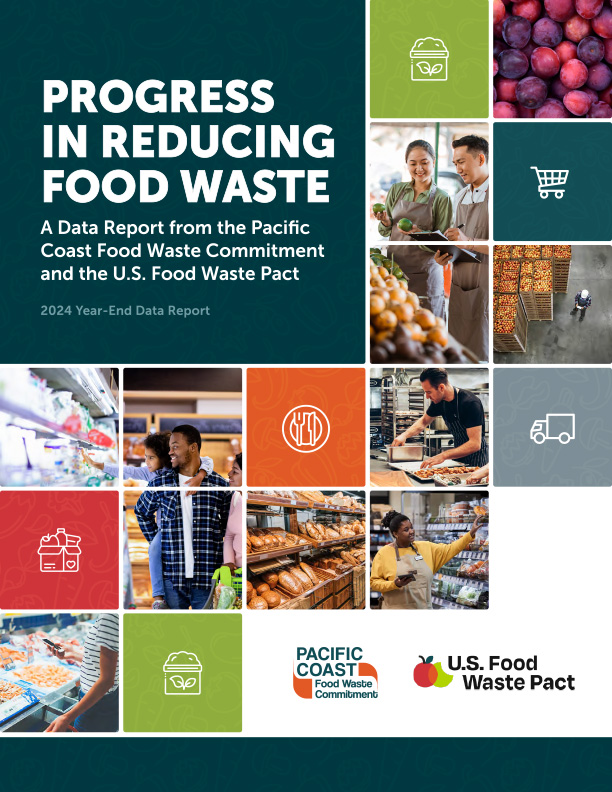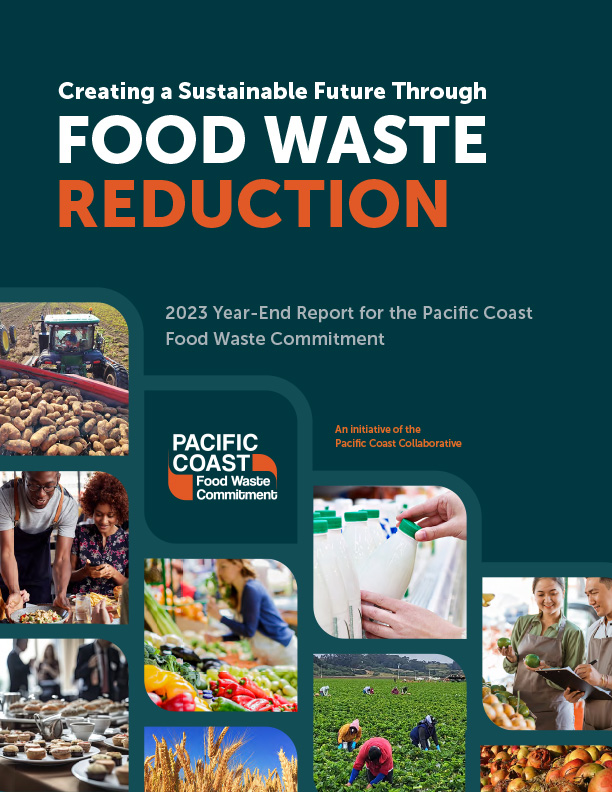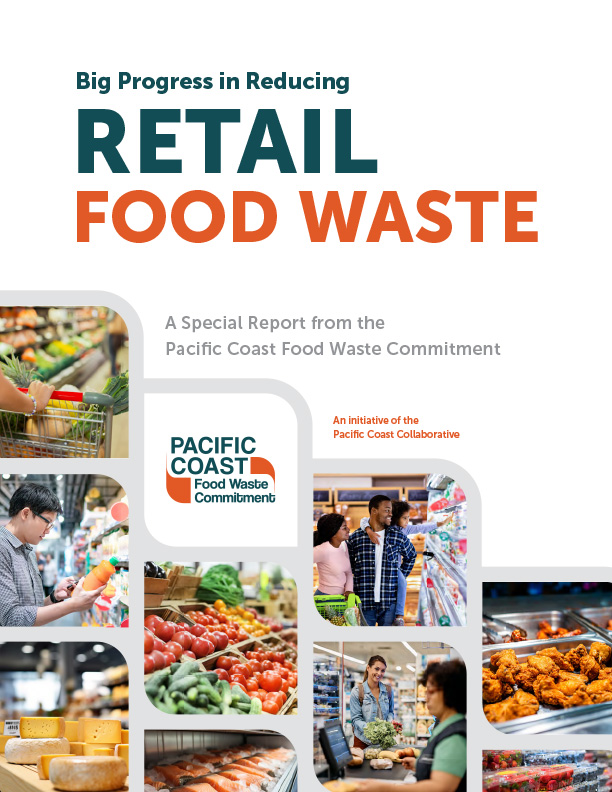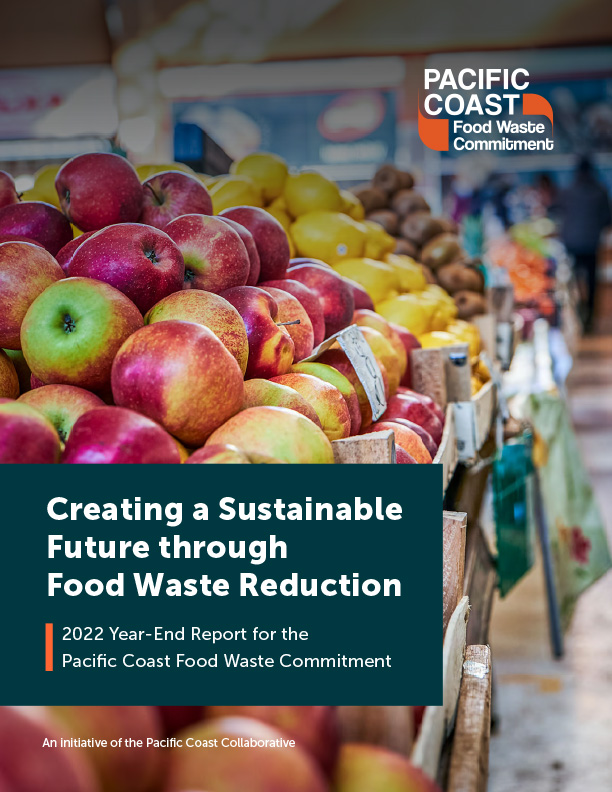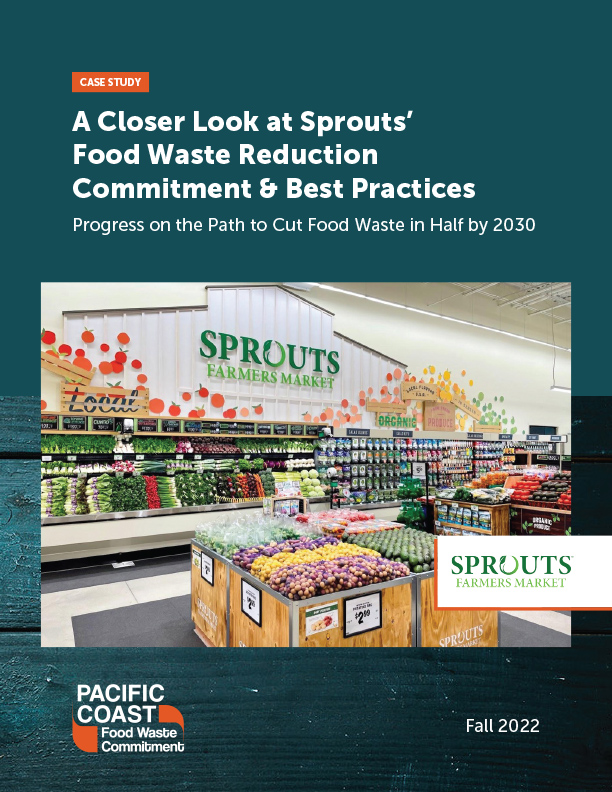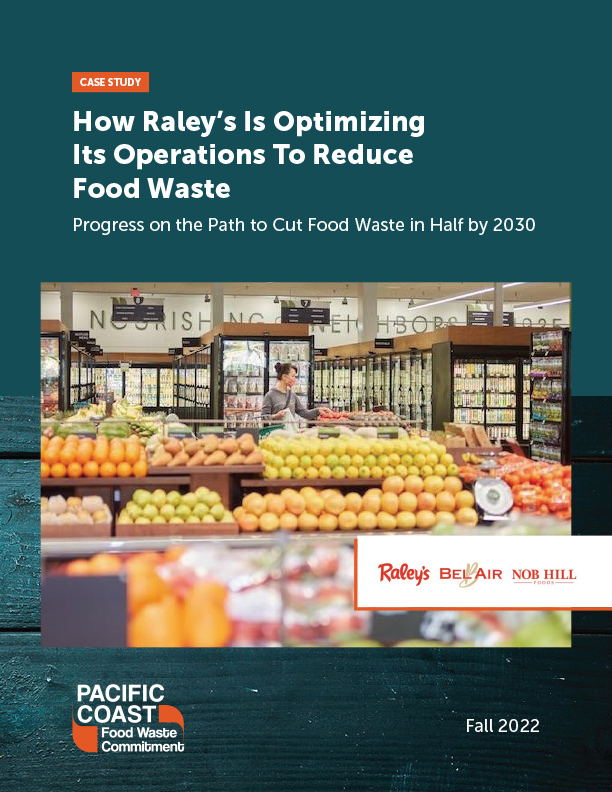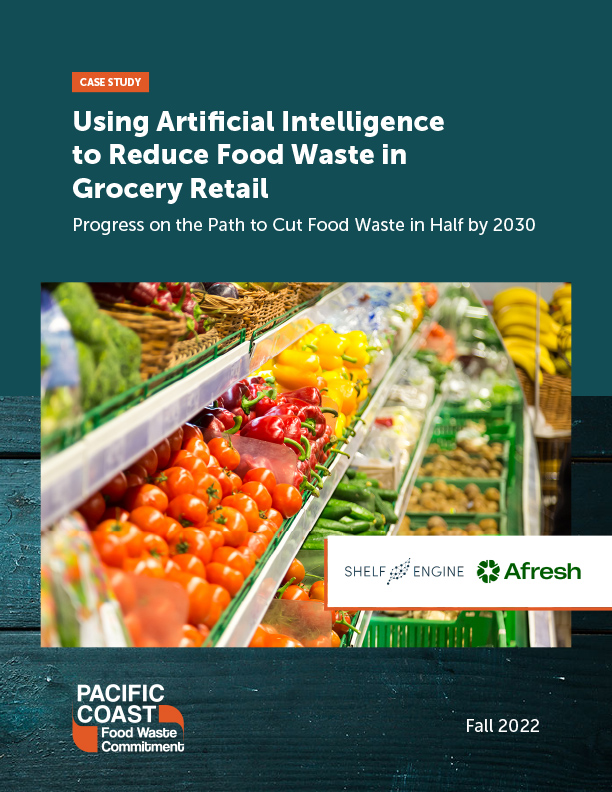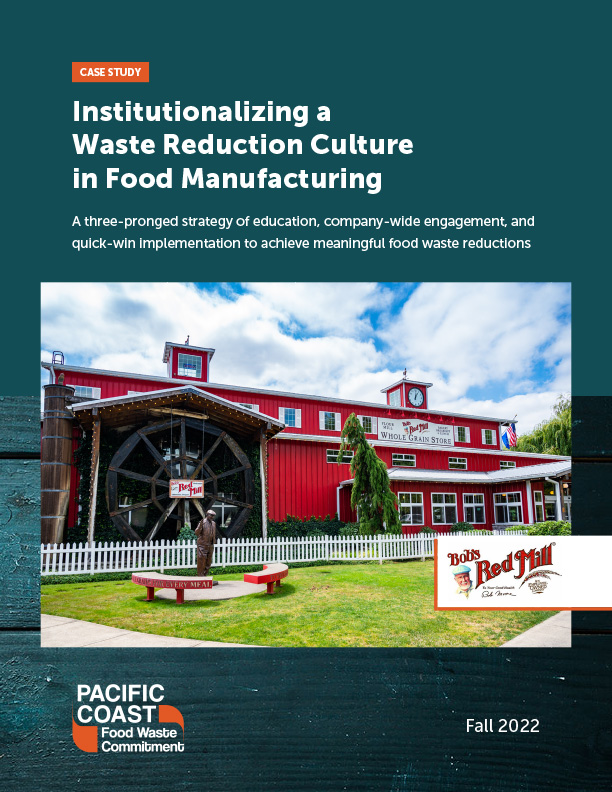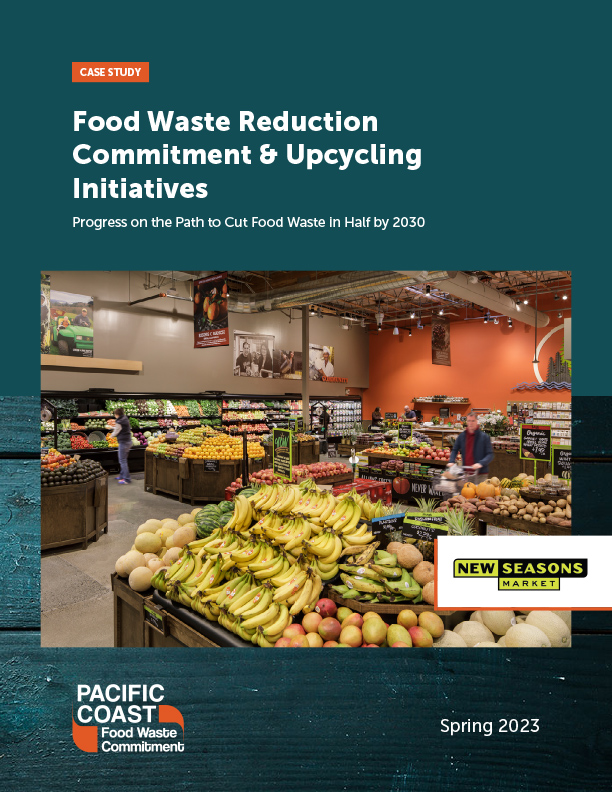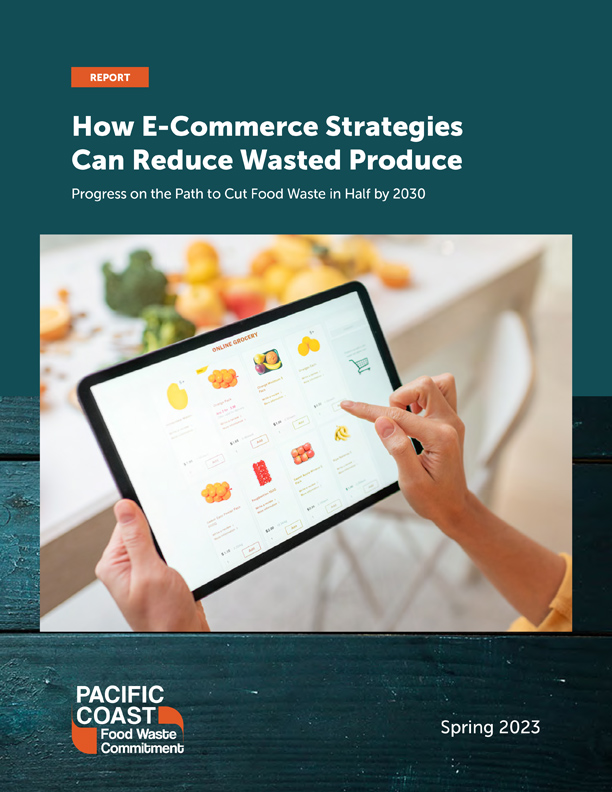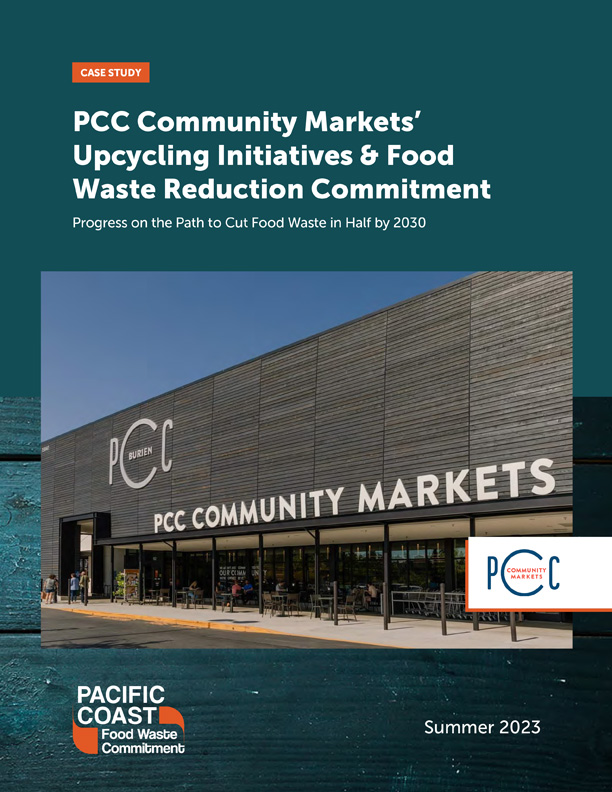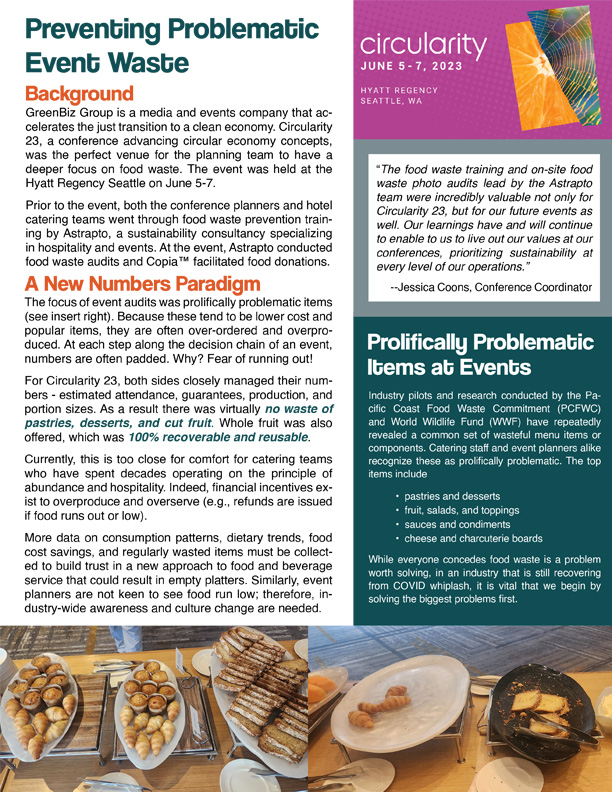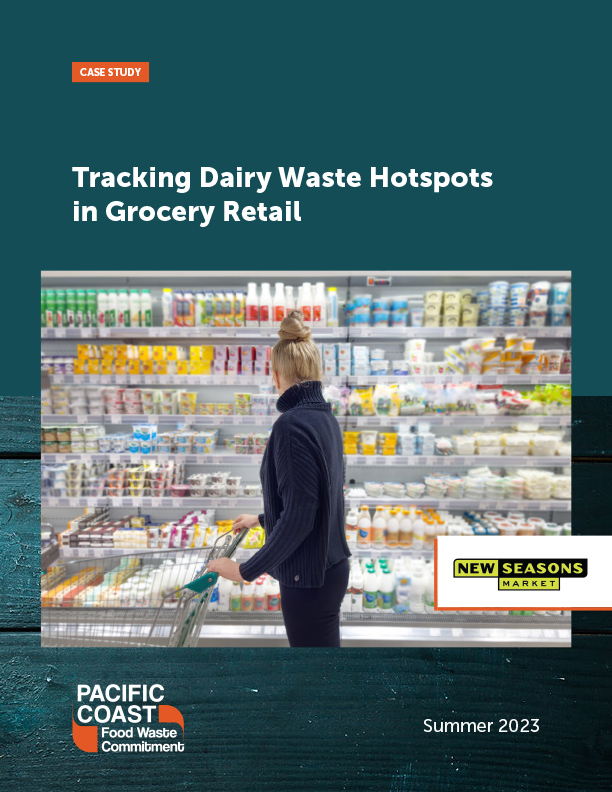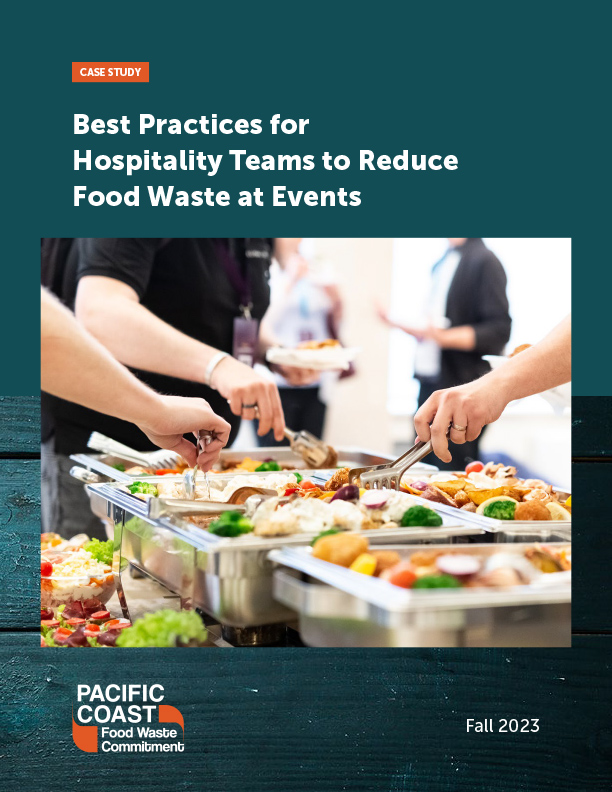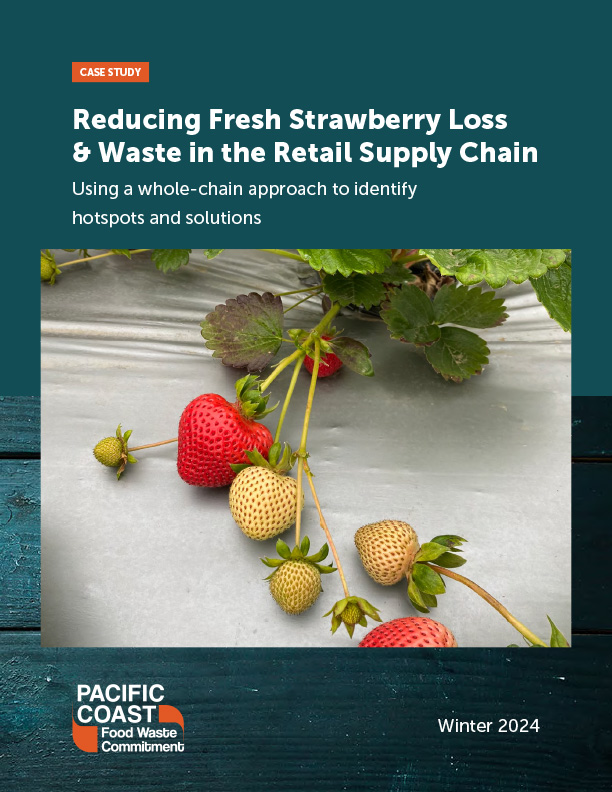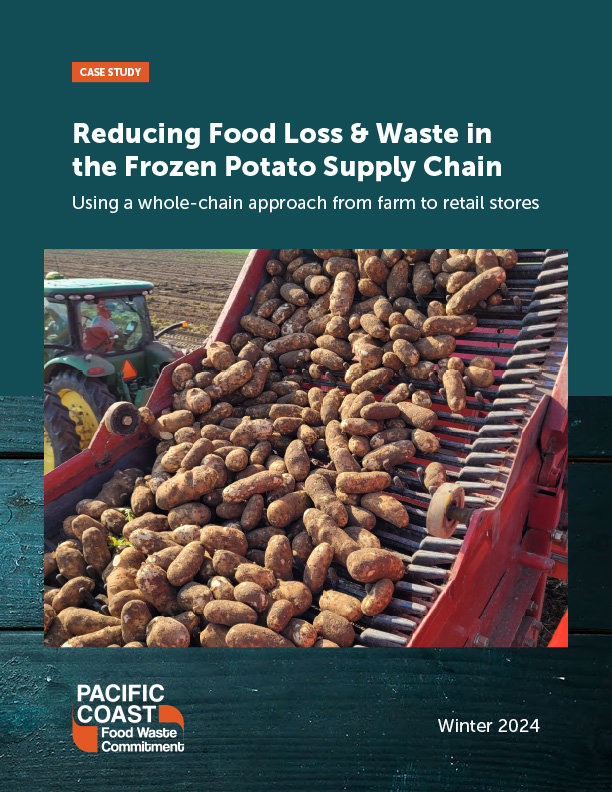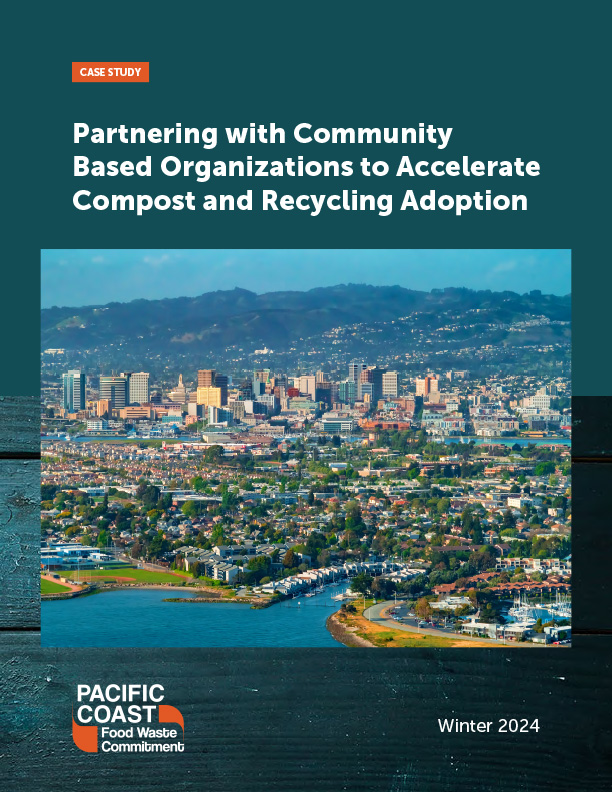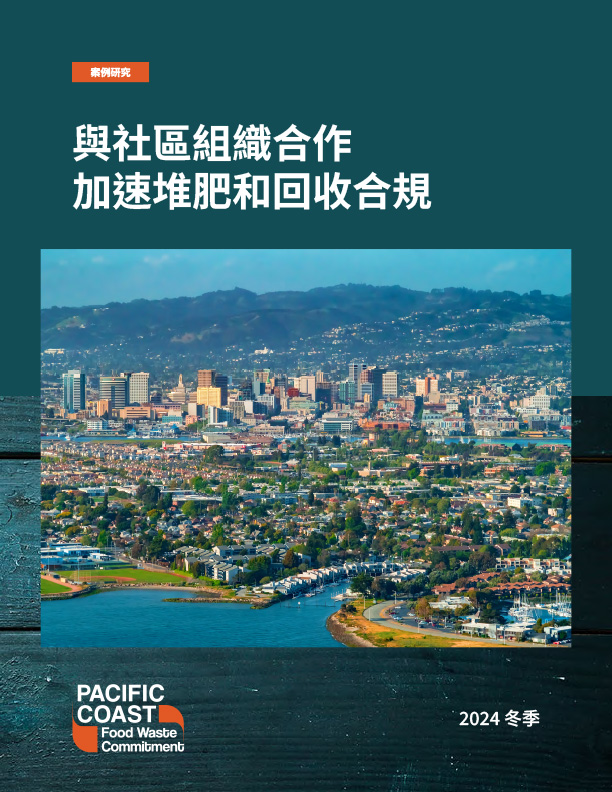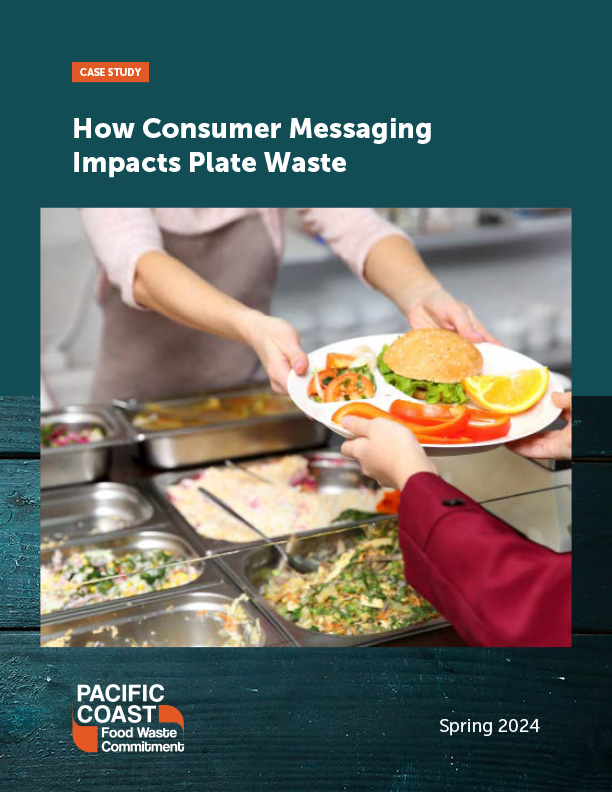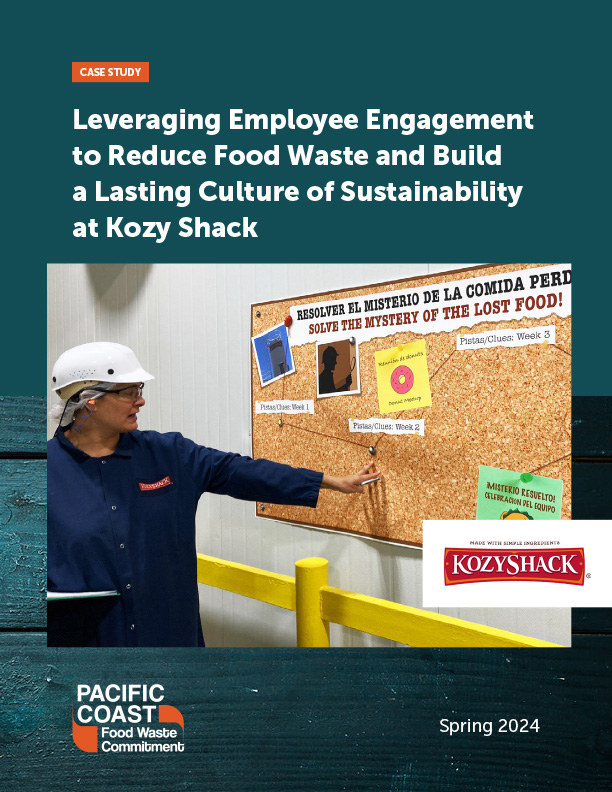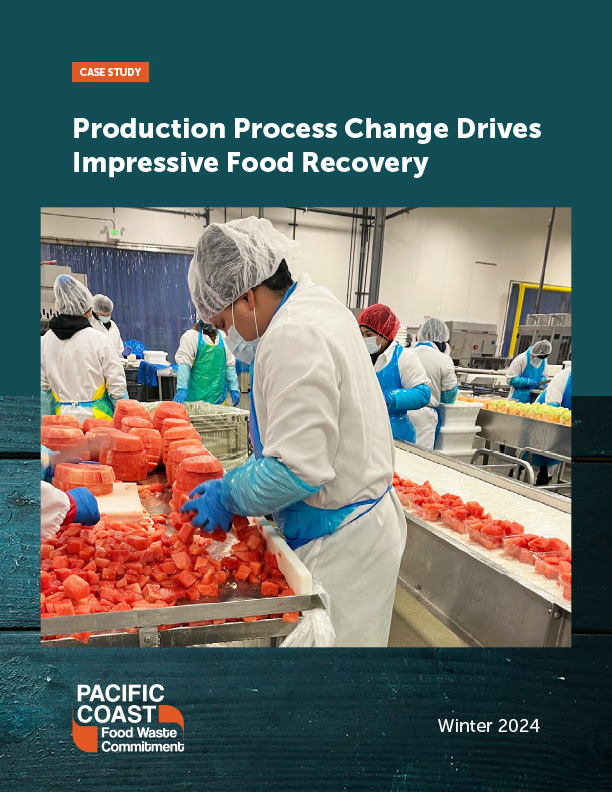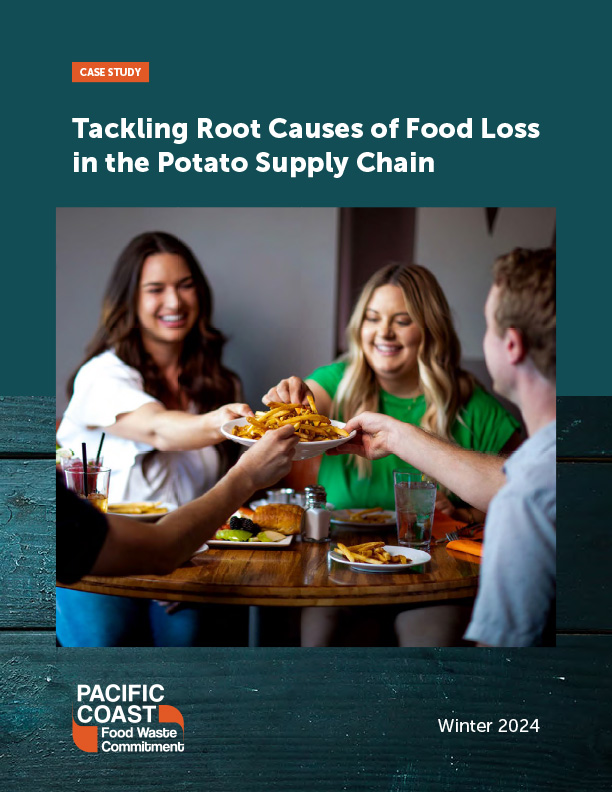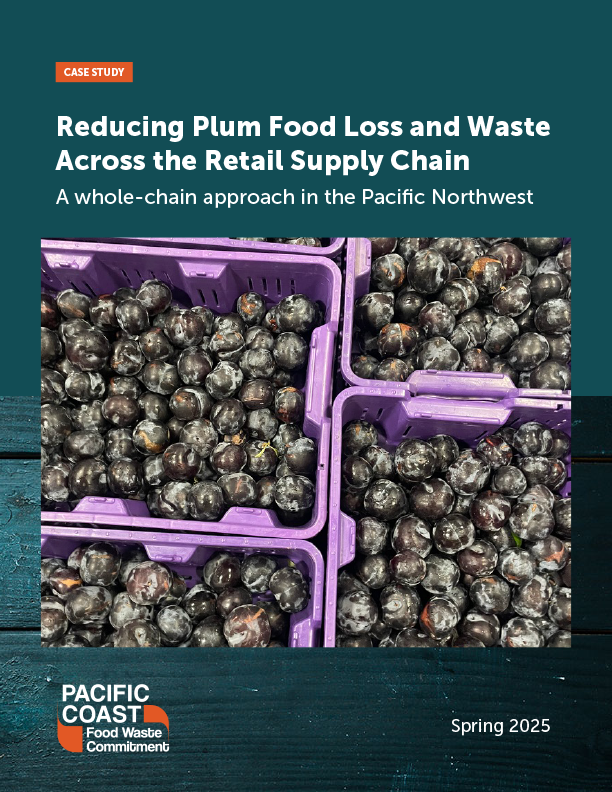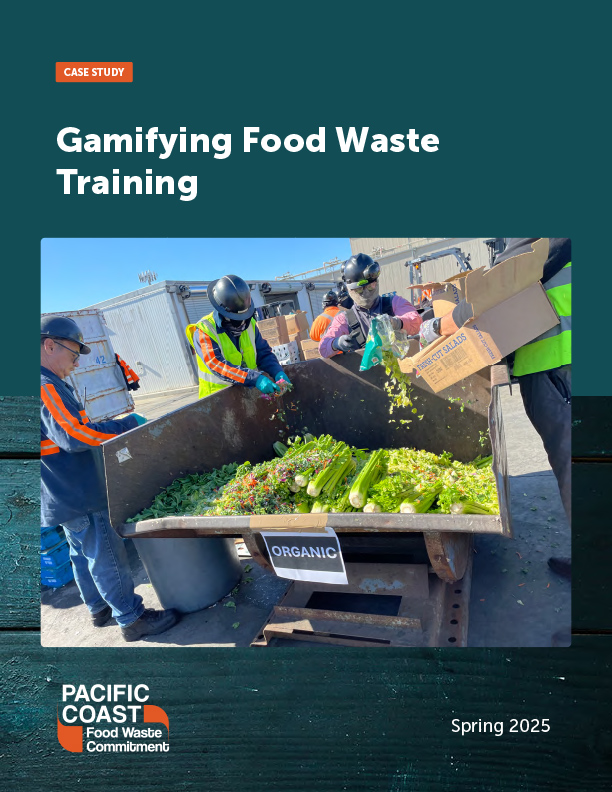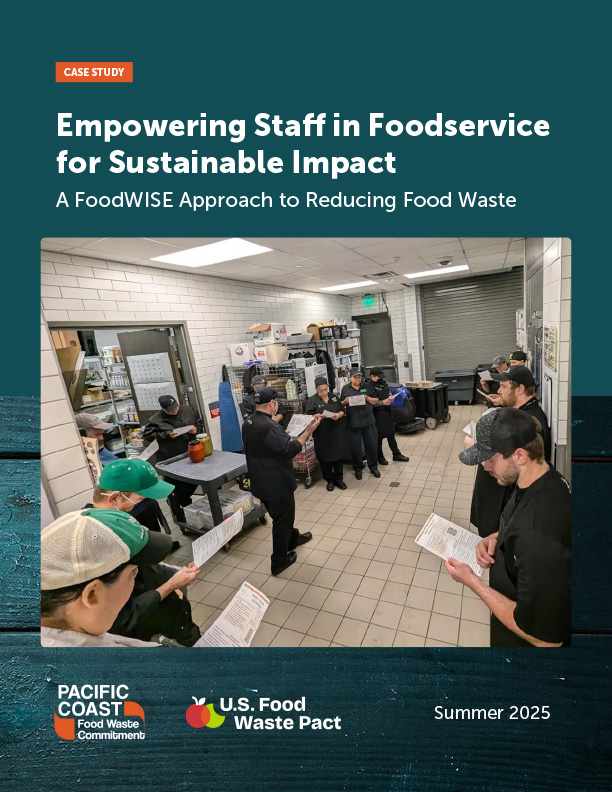Reducing Wasted Food
Pacific Coast Food Waste Commitment
Help Us Cut Food Waste in Half By 2030
The Pacific Coast Collaborative is calling on food businesses and jurisdictions to join the Pacific Coast Food Waste Commitment (PCFWC), an unprecedented public-private partnership featuring some of the nation’s largest food businesses alongside local, state, and provincial governments – all working collaboratively toward a shared ambition of effective, industry-wide actions that prevent and reduce wasted food along the West Coast.
The PCFWC is a voluntary agreement that builds upon existing food waste reduction platforms and commitments – including United Nations’ Sustainable Development Goal 12.3 and Champions 2030 – and provides a critical opportunity for the Pacific Coast region to lead the country in addressing the environmental, food security, and climate change crisis of food waste.
Our Progress
Case Studies
Resources
Produce Donation Training
Grocery stores, manufacturers, and food donation partners face particular challenges when it comes to donating and receiving highly perishable produce. The Center for EcoTechnology partnered with the PCFWC to create this succinct training on produce donations for teams working in the food industry. It presents the case for why donating surplus food is important and best practices for ensuring quality, safe food gets to donation partners. The training was informed by a survey that collected feedback from approximately 30 food rescue organizations on the challenges they face when receiving donated produce.
Food Waste Reduction Training
Individuals and business teams can be empowered to fight food waste at every node of the supply chain! Together with Triple Win Advisory and Bob’s Red Mill Manufacturing, the PCFWC created this food waste education and training video. It covers why food waste is a concern, where it occurs along the food supply chain, and what companies and individuals can do about it. Filled with infographics and engaging visuals, the intended audience is for staff members in retail, manufacturing, and restaurants, and for individuals wanting to understand steps they can take to reduce food waste in their home.
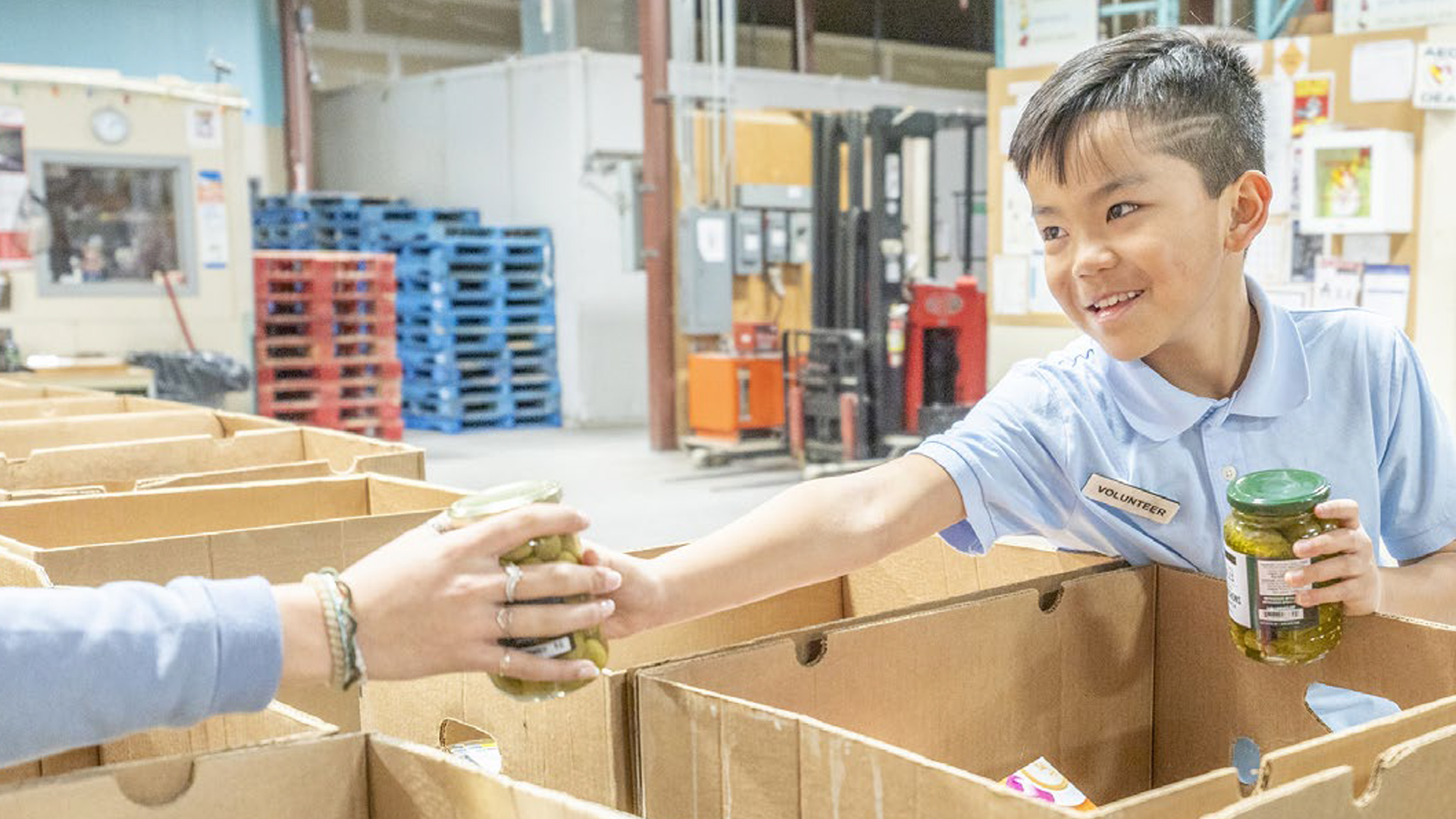
Food Recovery and Donation Guide
Sodexo USA and the Sodexo Stop Hunger Foundation are committed to ending hunger and reducing carbon emissions and sharing best practices on food recovery. With that in mind, they’ve created the Food Recovery and Donation Guide to help businesses and organization repurpose their unused food. Their guide is designed to help foodservice operators overcome obstacles and build successful food recovery programs.
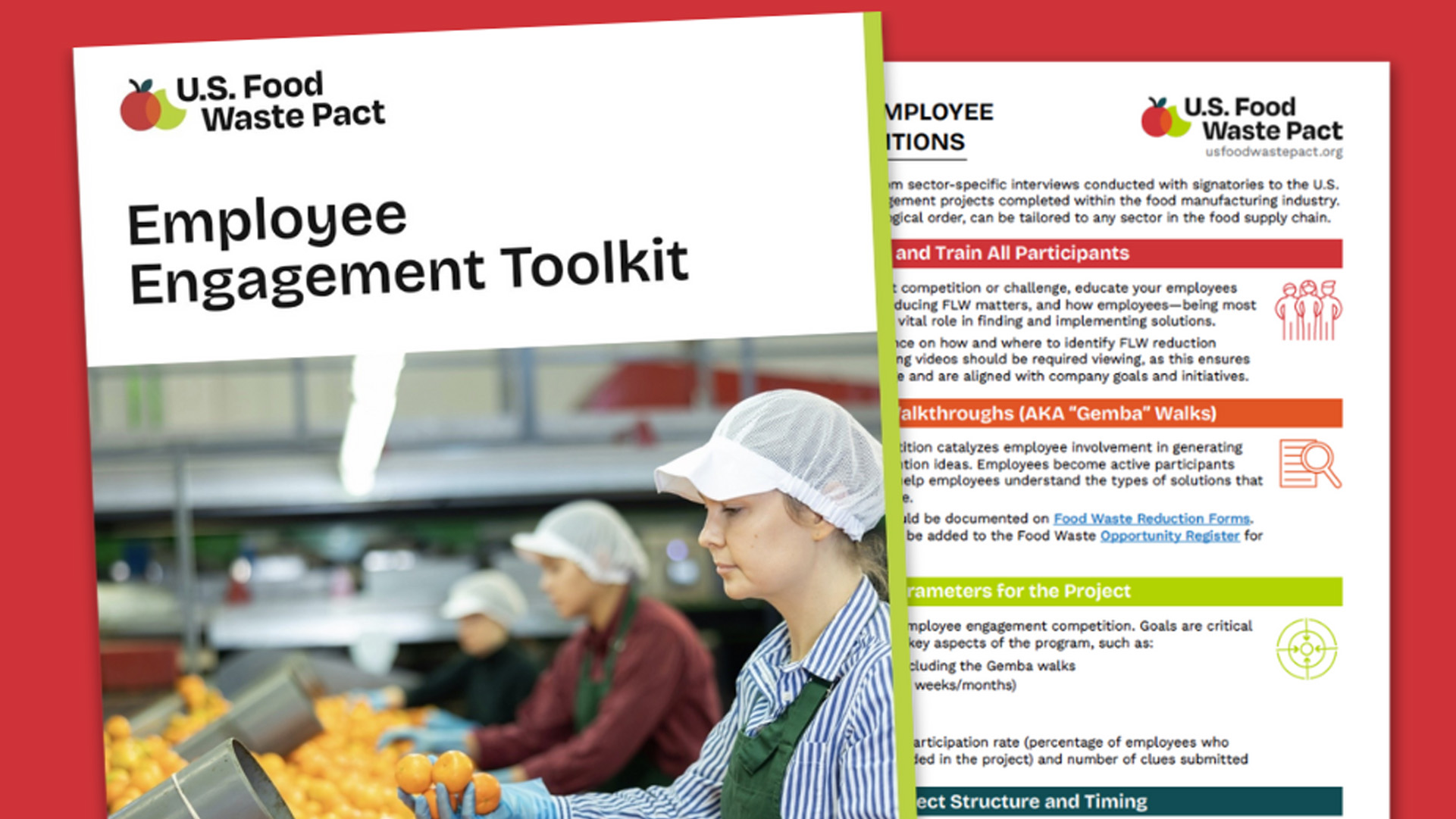
Employee Engagement Toolkit
After three successful employee engagement pilots that resulted in food waste reductions between 50-75%, the U.S. Food Waste Pact has put together a toolkit for any food business to successfully pilot an employee engagement intervention project. This toolkit has video tutorials, step-by-step guides, idea trackers, and more to help any business engage its staff and reduce food waste in its operations.
Learn More
To learn how your business or jurisdiction can be a part of this important effort, fill out the form below or contact Tara McNerney at tara.mcnerney@wwfus.org
To learn more about our upcoming food waste intervention projects and open RFPs, please click here.
Food Business Signatories
Retailers
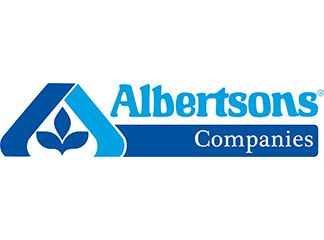
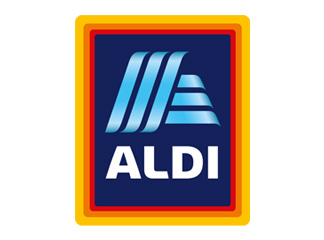
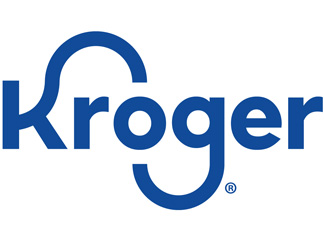
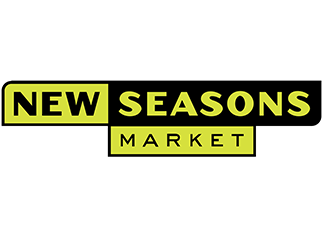
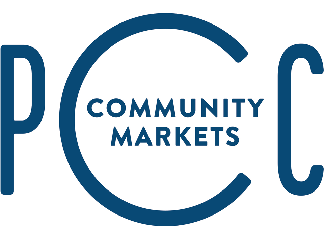
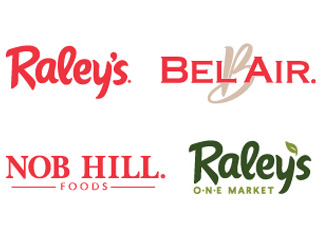
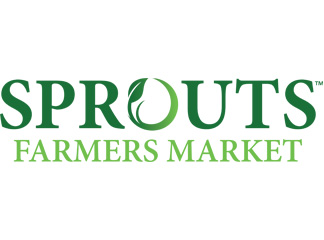
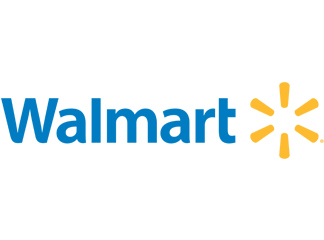
Manufacturers
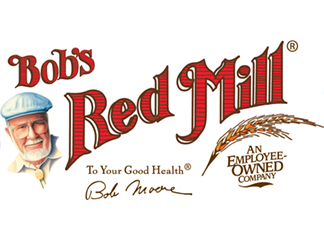
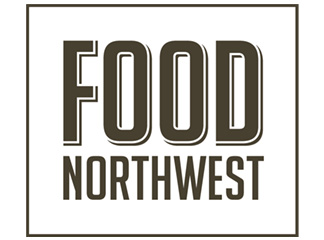
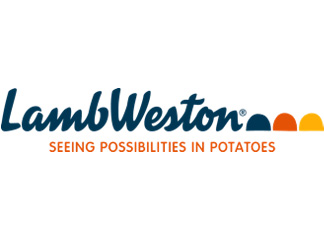
Foodservice Companies
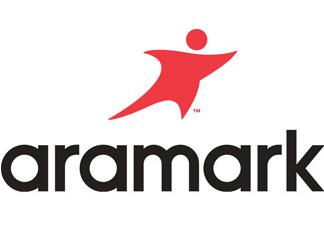

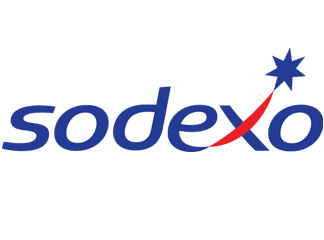
Growers
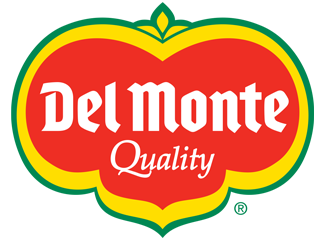
Distributors
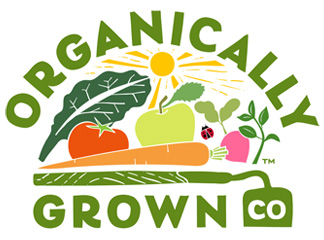
Jurisdiction Partners
California
Los Angeles
Oakland
San Francisco
Alameda County
Oregon
Portland
Washington State
Seattle
King County
British Columbia, Canada
Vancouver
Resource Partners
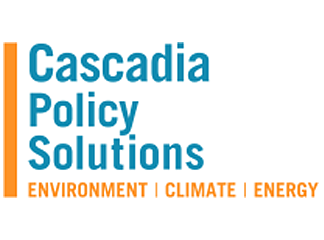
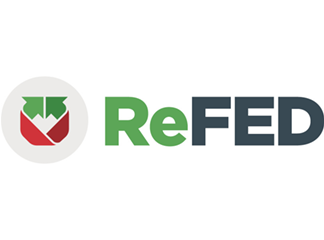
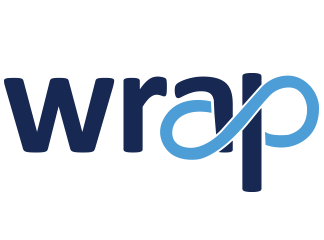

Funders
The Pacific Coast Food Waste Commitment could not accomplish our work without the generous support of our funders.

Funded by a Grant from the Department of Resources Recycling and Recovery (CalRecycle) through California Climate Investments.
We are also deeply grateful for the ongoing critical support provided by many of the PCFWC’s jurisdiction members.
Why Food Waste?
In the United States, 35% of food goes unsold or uneaten. It’s an enormous waste of environmental resources, including freshwater and cropland, and is responsible for more than one-fifth of all landfill volume. It’s also a major factor impacting the climate – in fact, the 2020 Drawdown Review from Project Drawdown ranks “reduced food waste” as one of its top solutions to decrease global greenhouse gas emissions. Food waste also affects the economy – new estimates put the cost of food waste in the Pacific Coast region alone at more than $65 billion, which is shouldered by businesses and consumers alike. And in 2020, COVID-19 brought the issue of food waste to national attention, as pandemic-related disruptions and bottlenecks caused spikes in the amount of loss and waste throughout the supply chain, all while tens of millions of people wondered where their next meal would come from.
How Can Your Business Reduce and Prevent Food Loss and Waste
- Commit: Sign on to the PCFWC to reduce and prevent wasted food by 50% by 2030 and work towards implementing existing commitments made under UN Sustainable Development Goal 12.3 and Champions 2030 as a region.
- Measure: Establish a streamlined methodology for measurement with the support of the PCFWC technical team and contribute to anonymized reporting through your own individual online dashboard – measurement makes management easier, and data gathered from your business and others will help identify areas to target.
- Act: Drive systemic change through pre-competitive industry collaboration to find solutions to shared barriers to reducing food waste. Contribute to demonstration projects, share and develop industry-wide best practices, and receive technical assistance related to policy, financing, business solutions, and education.
What Does Joining the PCFWC Mean for Your Business?
- The PCFWC is a voluntary agreement for food businesses to publicly commit to private sector action to reduce food waste by 50% by 2030.
- All PCFWC signatories establish a baseline year for wasted food within their operations and report against it annually.
- Signatories can participate in pre-competitive and collaborative working groups to discuss key waste hotspots within the value chain (on topics such as food rescue and minimizing produce and dairy waste).
- All signatories will receive support via facilitated convenings and hands-on engagement designed to help them reach their commitments, meet annual reporting goals, and implement meaningful actions that reduce wasted food.
- There’s no cost for year one – a cost-effective annual fee will be introduced in subsequent years.
How Does the PCFWC Benefit Your Business?
- Proven ROI: Food waste reduction programs have shown proven return on investment for all food-sector businesses.
- Analysis at Scale: Individual anonymous reporting will help your business measure progress, identify priority areas of action, and develop broader industry benchmarking.
- Actionable Insights: By collaborating through pre-competitive working groups, your business will gain best practices and insights into key waste hotspots to help achieve results faster—all while helping to build a regional roadmap for additional businesses to join the effort to reduce wasted food.
- Leadership and Community Building: Demonstrate your leadership on climate and hunger issues while engaging your community through increased and more streamlined food rescue and donation activities.
A Collaboration Model That Works
The PCFWC is based on a successful industry-supported voluntary agreement in the United Kingdom called the “Courtauld Commitment.” This effort resulted in:
- Overall delivery of a 19% reduction in UK food waste.
- More than £100 million in business savings from reducing food waste.
- A 14:1 return on investment for every dollar spent on food waste reduction.
- A 50% increase in food redistribution to those struggling with food insecurity.
- A reduction of 555,000 metric tons of CO2e emissions in the food and supply chain.
Join Us to Reduce Wasted Food by 50% by 2030
Fill out the form below to take the first step toward reducing wasted food on the West Coast.
Think Global. Act Local.

